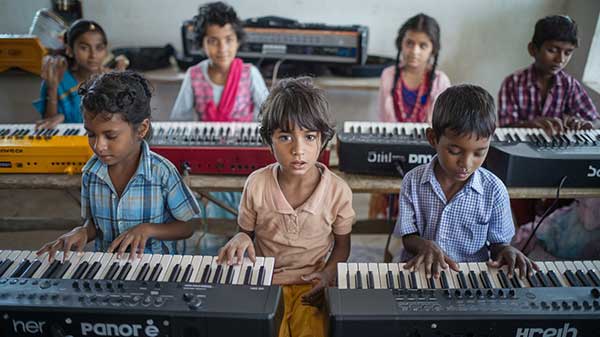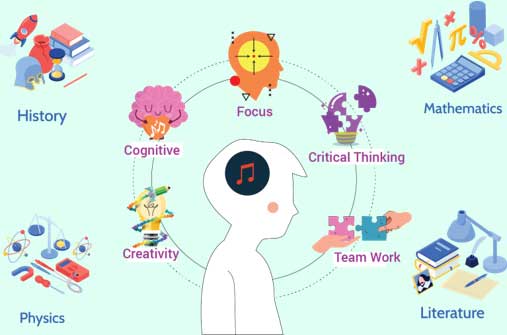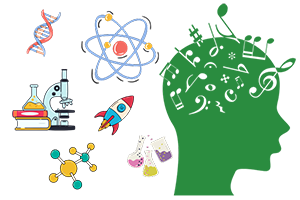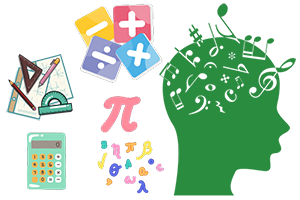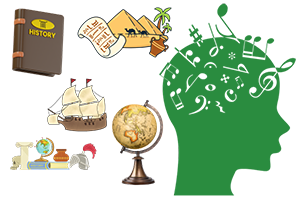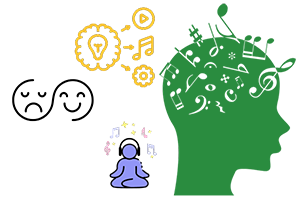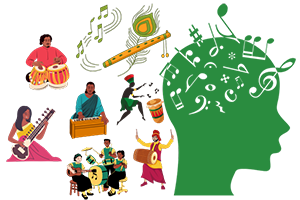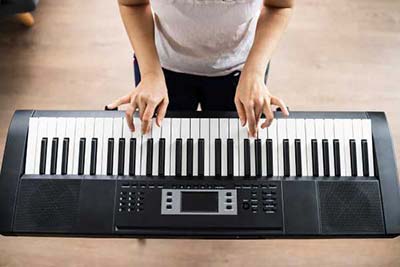Empowering Underprivileged Children Through Music
At LAMP Trust (LAMP-India.org), we believe that music is more than an art form; it is a powerful tool for transformation. Lorraine Music Academy is our CSR Partner. By integrating Lorraine Music Academy’s cutting-edge, technology-enabled music learning courses, we are bringing the joy and benefits of music to children from underprivileged sections of society, one note at a time.
With your support, we can create a future where every child, regardless of their circumstances, has access to high-quality music education.
Music: A Gateway to Holistic Learning
Music is not just about melodies and rhythms—it is an interdisciplinary subject that integrates history, science, culture, and emotion, sparking curiosity and enhancing cognitive abilities. Through our programs, children gain more than just musical skills:
- Enhanced Learning Abilities: Music strengthens brain function, improving memory, focus, and problem-solving.
- Cultural Awareness: Children explore music’s deep ties to global and regional cultures, fostering empathy and understanding.
- Emotional Well-being: Music serves as an outlet for self-expression and emotional regulation, promoting mental health.
We aim to bridge educational gaps by using music as a catalyst for academic and personal growth.
Why Music? Why Do We Need Music for Every Child in Every School?
Music is not just an extracurricular activity—it is an essential element of education that profoundly impacts students’ intellectual, emotional, and social development. It has the power to nurture well-rounded individuals, enhance creativity, and build skills that are transferable across disciplines. By making music a compulsory subject in schools, we open doors to interdisciplinary learning that equips students to thrive in a complex, interconnected world.
Here is why music should hold a central place in the education system:
Music and Science
Music fosters scientific thinking by engaging students in the principles of sound, acoustics, and physics. When students learn how different instruments produce sound, they also understand concepts like frequency, vibration, and waveforms.
Additionally, neuroscientific studies reveal how music impacts brain function, improving areas associated with memory, attention, and problem-solving. When children engage in musical activities, they are essentially performing scientific experiments – exploring patterns, understanding cause and effect, and experimenting with variables like tempo and volume.
Music and Mathematics
Music is inherently mathematical. It involves counting beats, understanding rhythm, and working with patterns of time signatures – all of which correlate directly with numerical reasoning. Learning music enhances spatial-temporal skills, which are critical for solving mathematical problems.
For example, understanding the fractions inherent in musical notes (such as quarter notes and eighth notes) directly reinforces mathematical concepts. As students engage with complex rhythms, they develop a deeper understanding of ratios, sequences, and patterns, laying a strong foundation for both arithmetic and algebraic thinking.
Music and History
Music serves as a time capsule, offering rich insights into historical periods, cultural revolutions, and social movements. From the classical compositions of Mozart to the protest songs of the Civil Rights Movement, music provides context for understanding history.
Through music education, students learn to interpret historical events and societal changes, gaining a deeper appreciation of the interconnectedness between art and life. Analyzing the evolution of genres also fosters critical thinking about the influence of history on cultural expressions.
Music and Language
Music and language share common cognitive pathways, making music a powerful tool for language acquisition. Singing songs in different languages enhances vocabulary, pronunciation, and auditory processing skills.
Learning music also improves verbal memory and reading comprehension, as students decode symbolic representations like musical notes and lyrics. For students learning additional languages, music provides a fun and engaging way to practice rhythm, intonation, and syntax.
Music and Psychology
Music profoundly impacts emotional regulation, cognitive development, and social bonding. It is an effective tool for reducing stress, enhancing focus, and boosting overall mental health. Psychologically, music activates brain areas linked to memory and emotional processing, offering therapeutic benefits.
In schools, incorporating music can help students manage anxiety, improve their emotional intelligence, and create inclusive environments where individuals feel a sense of belonging. The shared experience of making music also fosters collaboration and empathy among peers.
Music and Culture
Music is the universal language that transcends borders, connecting people across diverse cultures. It serves as an entry point to understanding traditions, values, and identities from around the world.
By studying different musical genres and practices, students develop cultural sensitivity and global awareness. Music education in schools helps children appreciate diversity and fosters respect for different communities, creating a more inclusive and empathetic society.
Why is the Keyboard the Perfect Start for Every Child?
Our programs focus on the electronic keyboard, an instrument that is not only accessible but also foundational in learning music. Here is why:
- A Versatile Introduction to Music: The keyboard lays the groundwork for understanding melody, harmony, and rhythm – skills essential for any instrument.
- Quick Wins, Lifelong Skills: Its straightforward learning curve allows children to experience the joy of creating music early on, building confidence and encouraging persistence.
- Affordable and Inclusive: With technology-enabled courses, keyboards become an ideal starting point for children in resource-limited settings.
By introducing children to the keyboard, we provide them with a strong musical foundation that opens doors to future opportunities in education and beyond.
How You Can Help
Your support can make a lasting difference in the lives of these underprivileged children:
- Donate: Your contribution helps us provide instruments, resources, and training to children in need.
- Sponsor: Join us as a CSR partner to empower communities through music education.
- Advocate: Spread the word about the transformative power of music and inspire others to support our mission.
Together, we can nurture talent, unlock potential, and create brighter futures for underprivileged children.
Let us Make Music Education a Reality for All
With Lorraine Music Academy’s innovative technology and LAMP Trust’s commitment to social impact, we are turning the dream of universal music education into reality. Join hands with us to create a world where every child has the chance to learn, grow, and shine through the power of music.
Make a difference today—because every child deserves a melody to call their own.

